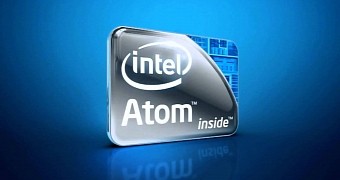Apparently, the current Intel discount for the previous-gen Atom “Bay Trail” CPUs has prompted vendors of low-end tablets to rush to order as many SoC pieces as possible before the discount is over. Intel’s discount comes as an effort from the American company to get rid of its “Bay Trail” stock before starting to sell its new “Cherry Trail” models en masse.
Currently, Intel sells both the old “Bay Trail” CPU models and the newest “Cherry Trail” Atom chips. However, the old “Bay Trails” may be phased out soon, and in an effort to finish its stock, the chip maker decided to impose heavy price cuts on its old chips, while also keeping the price of its new “Cherry Trails” slightly higher at around $15.
According to Digi Times, Intel offered the “Bay Trail” models at $8 discount for Google Android tablets and $4 off for Microsoft Windows. Meanwhile, the current price of the “Cherry Trail” is reduced by only $2 or $3. The “Bay Trail” price cuts will be over in October.
Last year, the chip maker lost approximately $4.2 billion because of the heavy discounts for its “Bay Trail” SoCs, so it makes sense for the American company to want to put an end to the price cuts and push forward its “Cherry Trail” SoC.
Intel will shut the gates of low cost “Bay Trail” as it focuses again on PCs
The new Atom made by Intel is produced using 14nm process technology and is based on the more advanced “Airmont” micro-architecture and a much better graphics core. Intel hopes that even though it sells the new SoC at a naturally higher price, it will convince manufacturers to stay true to Intel’s processing solutions.
Unfortunately, this is not likely since they are said to be planning to switch to Qualcomm or MediaTek immediately after the discount drops. Even though Intel currently leads the tablet SoC industry, this dominance might not continue for long, as higher prices will deter any partners from continuing their collaboration with the company, while Intel itself has declared that it wants to move back to the PC industry.

 14 DAY TRIAL //
14 DAY TRIAL //